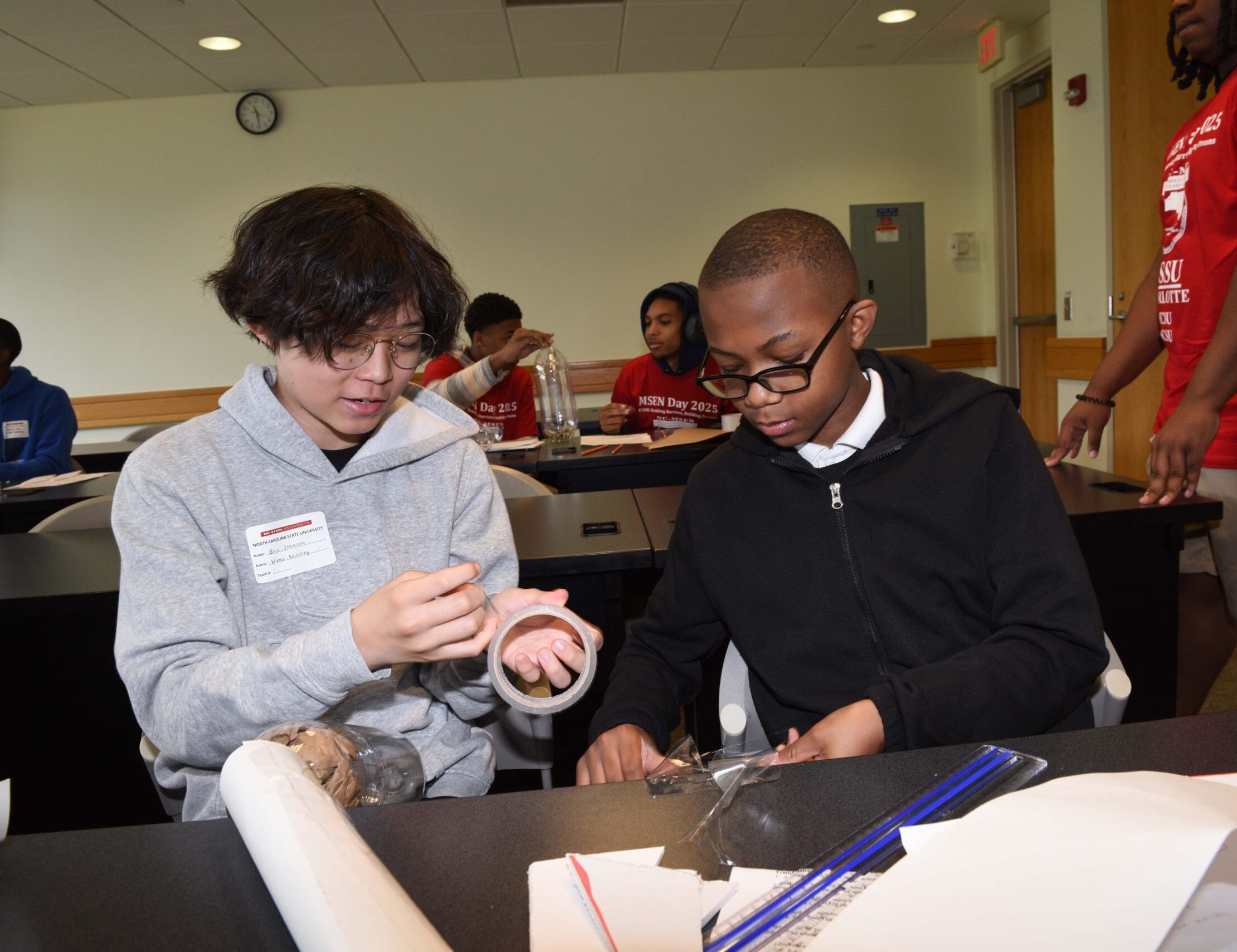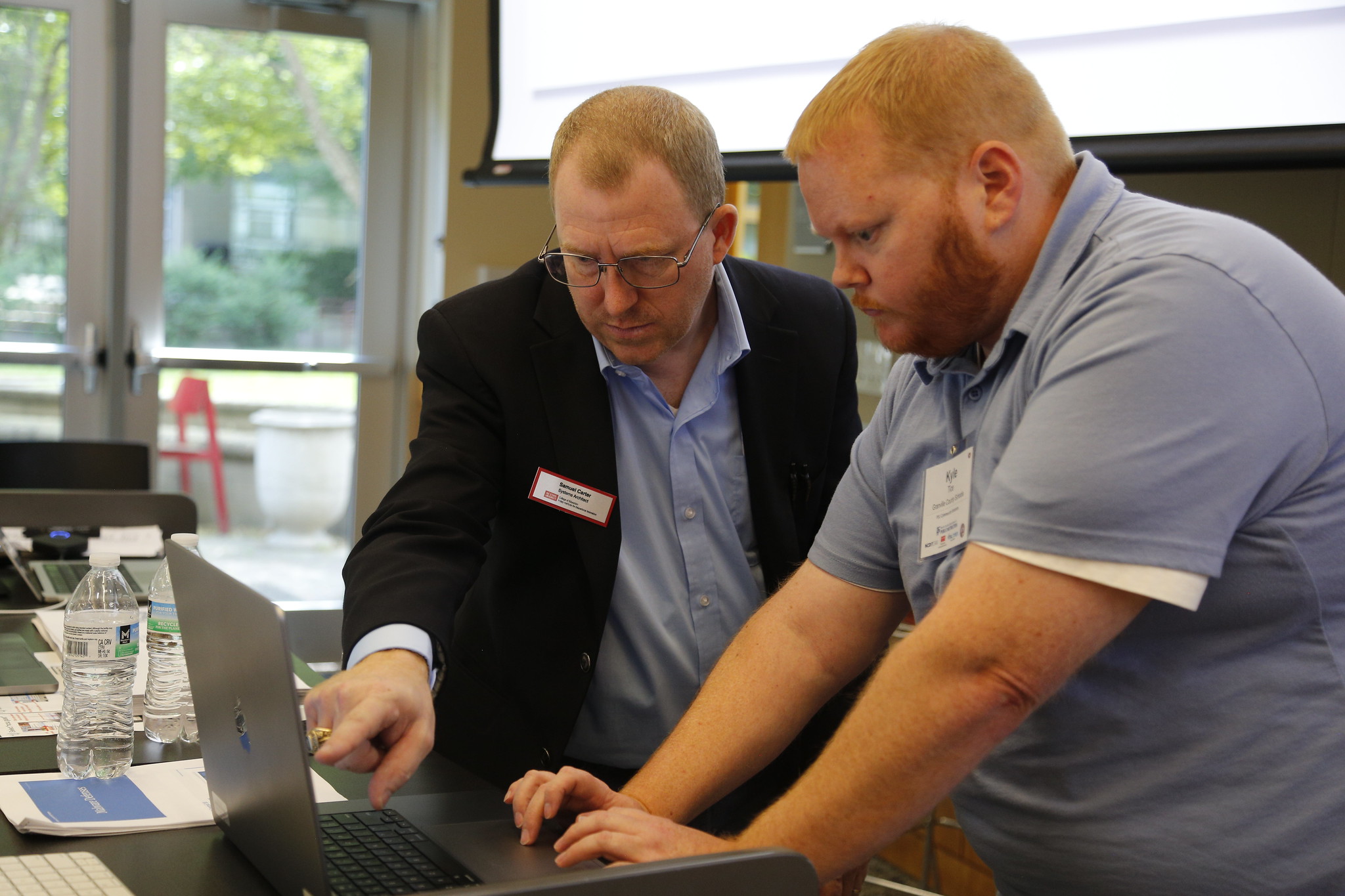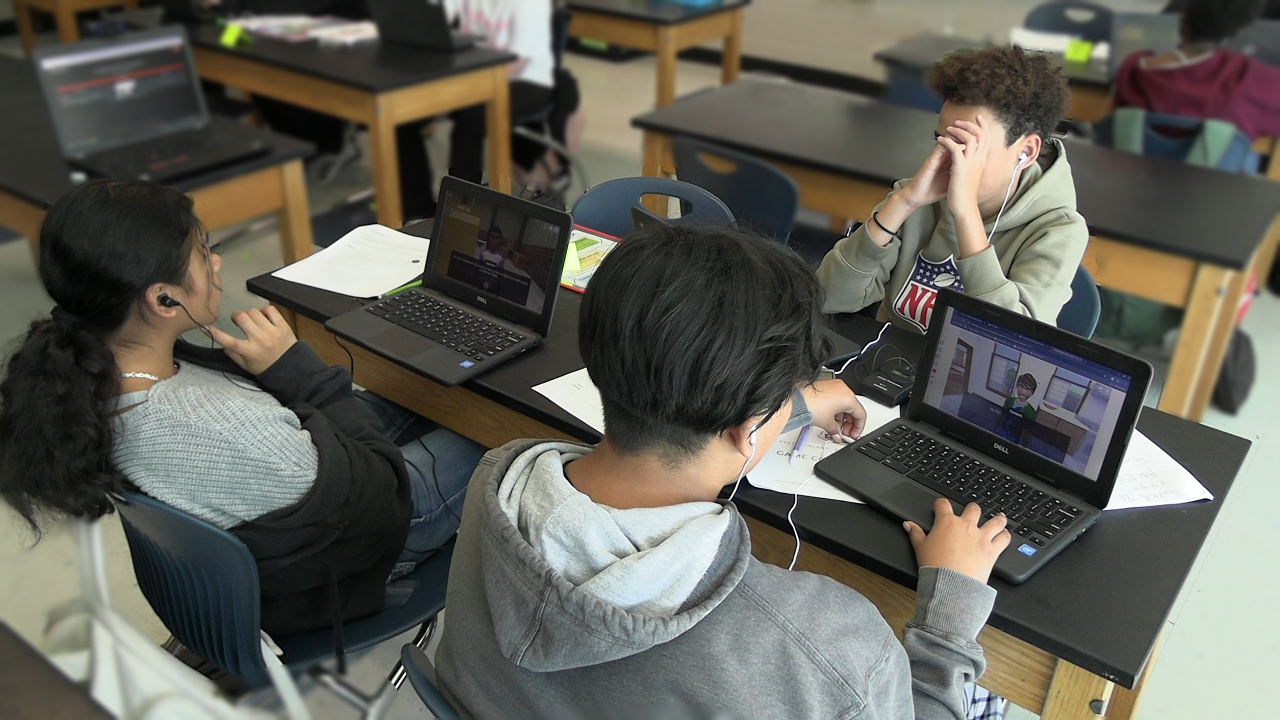Project-Based Inquiry (PBI) Global Research Highlights How Motivation And Science Knowledge May Be Influenced By School Contextual Factors
 A recent study written by Executive Director and Professor Emerita Hiller Spires, New Literacies Collaborative Director Marie Himes and NC State College of Education Assistant Professor Erin Krupa is contributing findings to a growing body of evidence in support of project-based learning. “Supporting Students’ Science Content Knowledge and Motivation through Project-Based Inquiry (PBI) Global in a Cross-School Collaboration” explores the effects of PBI Global on students’ science content knowledge, motivation and perspectives related to inquiry in a cross-school collaboration. Using a mixed methods design, data were analyzed from 75 ninth grade students across two schools, including pre-/post-tests on science content and motivation, transcripts from student focus groups and students’ digital learning products.“Students in this study collaborated across time, space and cultures, which added an important and challenging dimension to the science inquiry-based learning process,” said Spires. Initially created by Spires in 2006 and further developed over subsequent years, PBI Global is an inquiry-to-action process that has five phases: compose a compelling question; gather and analyze sources; creatively synthesize claims and evidence; critically evaluate and revise research findings; and communicate (i.e., share, publish and act) learning products to an authentic audience. PBI Global has engaged over 3,000 teachers and students in the U.S., Belize, Kenya and China.The two schools in this study collaborated for four weeks to implement the PBI Global cycle across time, space and community cultures on the topic of United Nations Sustainable Development Goal (SDG) Six: Clean Water and Adequate Sanitation. Before compelling question development, students read A Long Walk to Water by Linda Sue Park in order to build background knowledge on the global water and sanitation context, specifically in South Sudan.In the study, quantitative findings indicated School B students were more motivated by the project than School A students; these results aligned with student performance on science content. Three themes emerged from the student focus group findings: constructing empathy, learning for impact and navigating challenges.The authors presented a nuanced explanation of how motivation and content knowledge may be influenced by student experiences and school contextual factors during PBI Global. “Our results suggested how relationship building, mutual respect and consensus making are essential components of constructing cross-school collaborations when implementing PBI Global,” said Spires.School stakeholder buy-in and coherent leadership were foundational for PBI Global’s success. School leadership is essential for successful implementation. In fact, school leaders needed to set and to model expectations with students and colleagues in order for the collaboration to function at a high level, the study finds.“It’s important to identify and value each partner’s assets coming into a project like PBI Global,” said Himes. “This helps all parties navigate collaboration challenges and complexities as they arise rather than allowing them to become stumbling blocks for student learning.”Despite challenges in the cross-school collaboration, students from both schools demonstrated a sense of empowerment, with School B experiencing a significant difference from pre- to post-assessment. One student expressed a sense of agency with the PBI Global cycle affirming “young people can solve these problems themselves.”“It was amazing how the students persisted in the face of implementation challenges, which may be one of the most important outcomes of this study,” said Krupa.For future research, the team is interested in conducting an experimental design research approach with secondary student and teacher populations across multiple sites, emphasizing cross-school collaborations. This research was funded by the National Science Foundation in a grant awarded to Spires and Krupa. “Supporting Students’ Science Content Knowledge and Motivation through Project-Based Inquiry (PBI) Global in a Cross-School Collaboration” was published in Education Sciences as part of a special issue focused on project-/problem-based learning in schools.About the Friday InstituteThe Friday Institute for Educational Innovation advances K-12 education through innovation in teaching, learning and leadership by bringing together students, teachers, researchers, policymakers and educational professionals to foster collaborations that improve education for all learners. The Friday Institute for Educational Innovation is part of NC State’s College of Education, one of the leading land-grant colleges of education in the nation.
A recent study written by Executive Director and Professor Emerita Hiller Spires, New Literacies Collaborative Director Marie Himes and NC State College of Education Assistant Professor Erin Krupa is contributing findings to a growing body of evidence in support of project-based learning. “Supporting Students’ Science Content Knowledge and Motivation through Project-Based Inquiry (PBI) Global in a Cross-School Collaboration” explores the effects of PBI Global on students’ science content knowledge, motivation and perspectives related to inquiry in a cross-school collaboration. Using a mixed methods design, data were analyzed from 75 ninth grade students across two schools, including pre-/post-tests on science content and motivation, transcripts from student focus groups and students’ digital learning products.“Students in this study collaborated across time, space and cultures, which added an important and challenging dimension to the science inquiry-based learning process,” said Spires. Initially created by Spires in 2006 and further developed over subsequent years, PBI Global is an inquiry-to-action process that has five phases: compose a compelling question; gather and analyze sources; creatively synthesize claims and evidence; critically evaluate and revise research findings; and communicate (i.e., share, publish and act) learning products to an authentic audience. PBI Global has engaged over 3,000 teachers and students in the U.S., Belize, Kenya and China.The two schools in this study collaborated for four weeks to implement the PBI Global cycle across time, space and community cultures on the topic of United Nations Sustainable Development Goal (SDG) Six: Clean Water and Adequate Sanitation. Before compelling question development, students read A Long Walk to Water by Linda Sue Park in order to build background knowledge on the global water and sanitation context, specifically in South Sudan.In the study, quantitative findings indicated School B students were more motivated by the project than School A students; these results aligned with student performance on science content. Three themes emerged from the student focus group findings: constructing empathy, learning for impact and navigating challenges.The authors presented a nuanced explanation of how motivation and content knowledge may be influenced by student experiences and school contextual factors during PBI Global. “Our results suggested how relationship building, mutual respect and consensus making are essential components of constructing cross-school collaborations when implementing PBI Global,” said Spires.School stakeholder buy-in and coherent leadership were foundational for PBI Global’s success. School leadership is essential for successful implementation. In fact, school leaders needed to set and to model expectations with students and colleagues in order for the collaboration to function at a high level, the study finds.“It’s important to identify and value each partner’s assets coming into a project like PBI Global,” said Himes. “This helps all parties navigate collaboration challenges and complexities as they arise rather than allowing them to become stumbling blocks for student learning.”Despite challenges in the cross-school collaboration, students from both schools demonstrated a sense of empowerment, with School B experiencing a significant difference from pre- to post-assessment. One student expressed a sense of agency with the PBI Global cycle affirming “young people can solve these problems themselves.”“It was amazing how the students persisted in the face of implementation challenges, which may be one of the most important outcomes of this study,” said Krupa.For future research, the team is interested in conducting an experimental design research approach with secondary student and teacher populations across multiple sites, emphasizing cross-school collaborations. This research was funded by the National Science Foundation in a grant awarded to Spires and Krupa. “Supporting Students’ Science Content Knowledge and Motivation through Project-Based Inquiry (PBI) Global in a Cross-School Collaboration” was published in Education Sciences as part of a special issue focused on project-/problem-based learning in schools.About the Friday InstituteThe Friday Institute for Educational Innovation advances K-12 education through innovation in teaching, learning and leadership by bringing together students, teachers, researchers, policymakers and educational professionals to foster collaborations that improve education for all learners. The Friday Institute for Educational Innovation is part of NC State’s College of Education, one of the leading land-grant colleges of education in the nation.
- Categories:


